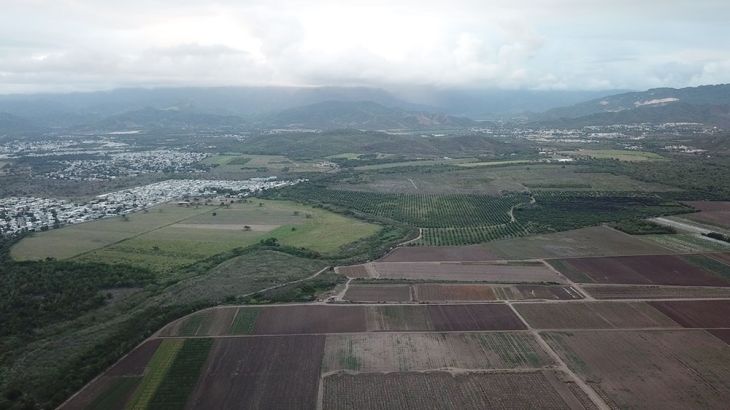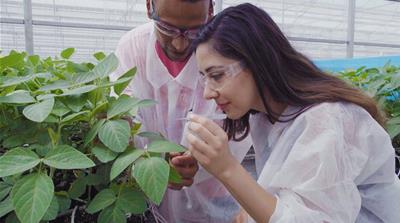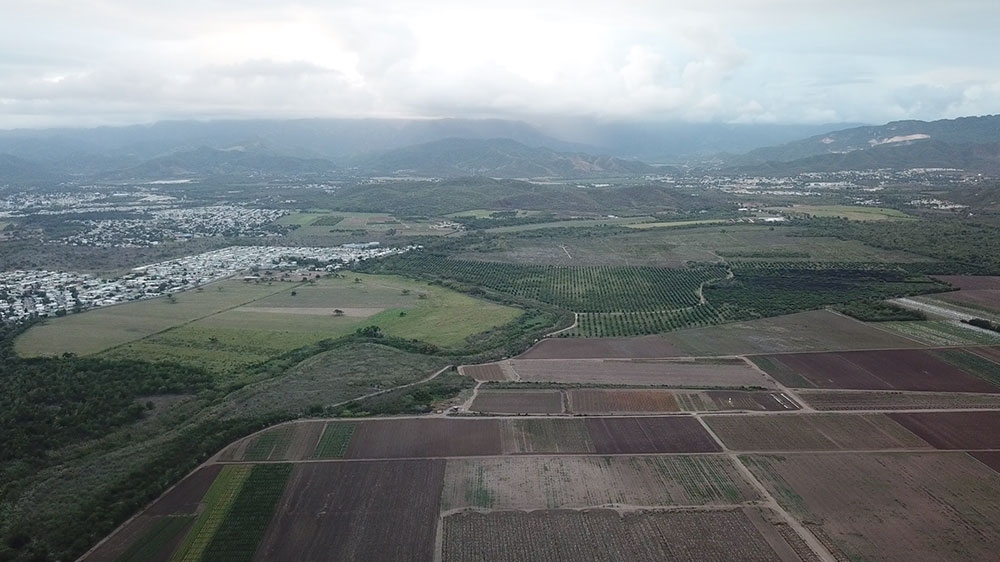Why is Monsanto in Puerto Rico?
Locals question why the agrochemical company has received huge tax breaks to grow GMO seeds in the US territory.

Juana Diaz – Puerto Rico is suffering from a $72bn debt crisis. The US territory must import more than 85 percent of its food, and it has yet to recover from the devastation caused by Hurricane Maria in 2017.
At the same time, agrochemical companies like Monsanto (now owned by German pharmaceutical giant Bayer) have received massive tax breaks to test and grow GMO seeds on the island, including soybean and cotton seeds that the company sends to farmers around the world.
The presence of Monsanto, and the territory’s deepening economic crisis, has prompted some locals to resist the company’s presence on the island. Meanwhile, those living near Monsanto’s operations allege the chemicals the company sprays, both on its fields and inside its facilities, are making them sick. Monsanto maintains the chemicals it uses are safe.
In the latest episode of AJ+’s Direct From with Dena Takruri, we travelled to Puerto Rico‘s southern municipality of Juana Diaz, which contains some of the island’s most fertile land, to examine Monsanto’s operation first hand.

We spoke to local farmers, residents, Puerto Rico’s governor and Monsanto officials to find out why the US territory allows agrochemical companies to grow crops that are not native to the island on some of the most fertile land while simultaneously importing more than 85 percent of its food. We also ask: How should Puerto Ricans build a more sustainable, equitable future for themselves, and most importantly, is Monsanto the reason why so many Puerto Ricans are getting sick?
The Puerto Rico operation
Monsanto is no stranger to controversy. The company’s activities are well-documented, including in India, as well as in the United States, where 13,000 plaintiffs have alleged the company’s trademark weedkiller, RoundUp, and its active ingredient glyphosate causes cancer. But the seed giant’s presence in Puerto Rico remains relatively unknown.
In Juana Diaz, Iris Pellot, a former agronomist, said her time working with chemicals inside Monsanto’s facilities got her extremely sick. She developed rashes, inflammation and respiratory problems – all while she was pregnant with her third child. Her symptoms got so bad that she went into anaphylactic shock three times and eventually had to stop working, despite needing to provide for her children. Her doctor told her she might die.
To this day, despite being represented by a lawyer, Iris has still not been able to find out the specific chemicals she was handling at the time. Responding to questions about Pellot’s case, the company told AJ+ it has done everything in accordance with the law.

In the barrio of Arus, directly across from Monsanto’s fields, we met several people who claim the chemicals sprayed there have caused itchy eyes, difficulty breathing and cancer in the community.
Monsanto told AJ+ it maintains full compliance with all regulations and insists that the chemicals being sprayed near Arus and elsewhere on the island are safe. The company, now officially called Bayer Crop Science, agreed to give us a rare tour and interview at their new smart greenhouse. Bayer Crop Science Spokesman Miguel Pereira said glyphosate is sprayed in Juana Diaz, but he said he did not know how much.
What is known is that Puerto Rico is important to Monsanto’s GMO operation. All of its soybean and cotton seeds originate on the US territory.
Locals say that’s partly because companies like Monsanto have received the perfect set up here. As a seed corporation, it gets the same benefits as an individual farmer, including a 90 percent tax exemption, access to free water, and in Monsanto’s case, close to three million dollars in wage subsidies. And Bayer’s acquisition of Monsanto in 2018 made it the largest agrochemical company in the world.
In this episode, we speak to Puerto Rican Governor Ricardo Rossello, who last week, after pressure from protesters over unrelated leaked chat messages, announced his resignation, effective August 2. We asked him, why, exactly, a company as big as Monsanto needs tax incentives and free water. Are they really creating that many jobs?
We also met a family of organic farmers in the mountainous, idyllic region of Orocovis. Local farmers like Josue and Pamela believe small, sustainable farms are the answer to these mega-corporations and the future of food on the island. But fertile land like theirs is hard to come by.
Editor’s note: This episode of Direct From was filmed prior to the current scandal that has swept over Puerto Rico and led to Rossello’s resignation.